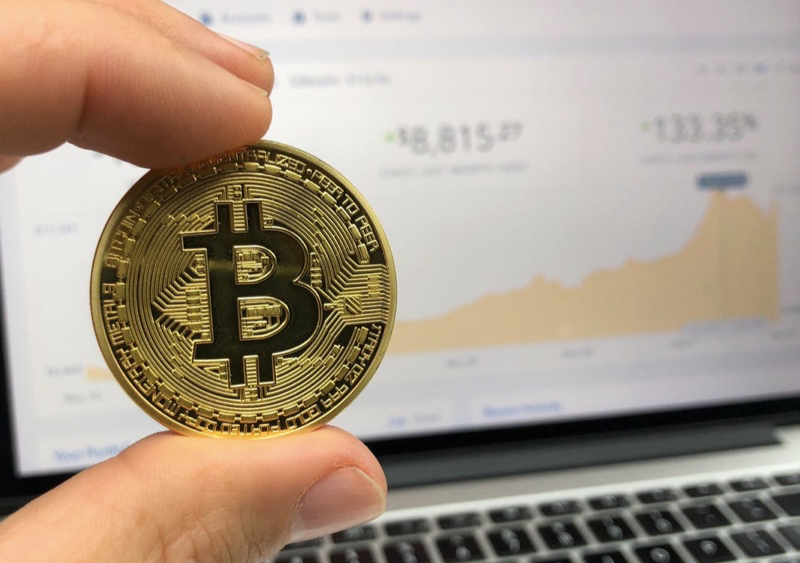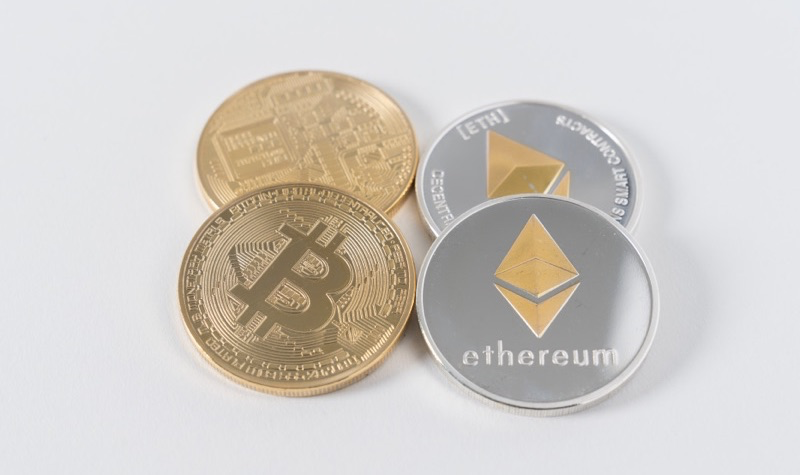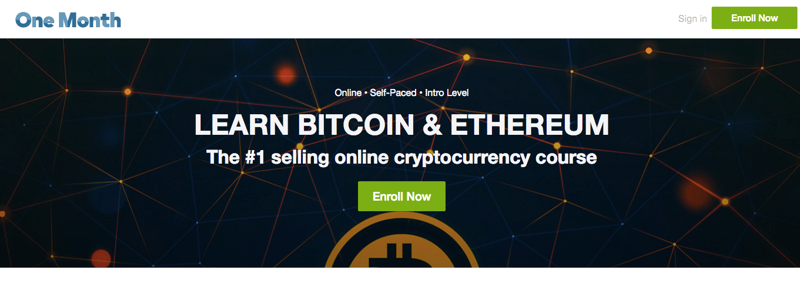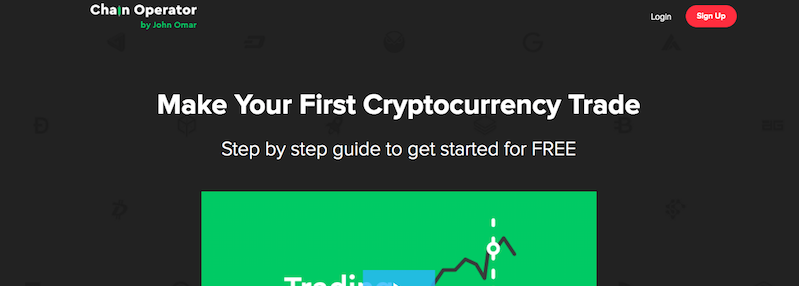The rise of cryptocurrency is creating a lot of new opportunities in tech, from bitcoin startup jobs to blockchain developer jobs and even entry-level cryptocurrency jobs. Whatever your current skills or level of expertise, it’s an industry well worth considering seriously.
After all, just look at the data: blockchain developers claim the #2 fastest-growing freelance skill according to an Upwork survey. Bitcoin jobs stand at #3.
And it’s not just freelancers that stand to benefit: traditional postings are skyrocketing for cryptocurrency jobs as well. Since November 2015, postings with keywords for jobs in blockchain technology have increased by 621% on Indeed.
The companies hiring for blockchain jobs are willing to pay well for them, too. Paysa reports that the average salary for employees in blockchain jobs is $97,000, and many make more. Even entry-level cryptocurrency jobs stand to pay $50-60,000!
So even if you’re a complete tech newbie, everyone needs a direction for their goals. Maybe getting a job in cryptocurrency will be yours :)
And I’m here with resources to help you explore this exciting new field! In this article, I’ll briefly explain what cryptocurrencies are (with input from some pros), give a quick overview of the jobs available, then show you how to get a job in cryptocurrency and where to learn more.
- What Is Cryptocurrency?
- What Kinds of Cryptocurrency Jobs Are Out There?
- Who Is Hiring for Cryptocurrency Jobs?
- Where to Start Learning About Crypto Technologies
- How to Get a Job in Cryptocurrency
- Conclusion
Disclosure: I’m a proud affiliate for some of the courses mentioned in this post. If you buy a course through my links on this page, I may get a small commission for referring you. Thanks!
What Is Cryptocurrency?
When you’re first learning about cryptocurrency, it can be a little hard to wrap your head around the fundamentals. Is it really currency? (Not under the U.S. tax law!) Is it more like a stock? (Not exactly, but it’s traded on exchanges like stocks are!) Cryptocurrency is a fascinating new invention that doesn’t fit neatly into a previously-existing category.

Here to help explain is John Omar, a programmer and cryptocurrency trader who teaches others to do the same. “A cryptocurrency is a digital asset that can be sent from person to person without the need of a central authority like a bank of government,” Omar says. “All transactions are recorded on a decentralized database called the blockchain.”
Let’s dive into this a little further.
The Function of Cryptocurrency
Bitcoin and cryptocurrency functions as a global currency that allows individuals to truly own and control their money without going through a third party like a bank.
This idea of money “ownership” is interesting. After all, don’t we own the government-backed currency we hold in our wallets and bank accounts now?
I recently spoke with cryptocurrency course creator Chris Castiglione on the Learn to Code With Me Podcast, who elaborated on the problems with the current banking system.
As Chris explains it, “You don’t actually own the money that you have in your bank right now. Let’s say you have $1,000 in your bank account. Theoretically, you can go down there and just say ‘hey, I want $1,000,’ and they might give you the dollars. But if everybody did that, there wouldn’t actually be enough money – physical dollars – in existence for everyone to go to the bank and get it.”

Essentially, when we put our money in a bank, we’re loaning it to the bank, who then invests it or uses it for other things and only keeps a small fraction on hand. During economic crises (think the Great Depression), when people need to access their money en masse, there aren’t enough available funds for everybody.
Cryptocurrency bypasses this problem by putting crypto funds directly in your control. It also enables you to transfer money to others directly anywhere in the world, without worrying about borders and currency conversions.
It also eliminates the middleman, which no other payment system in existence currently does. “If I pay with a credit card I’m relying on Mastercard to manage that payment,” Chris explains. “If I pay with PayPal, I trust PayPal. If I pay with USD cash, I’m relying on the United States to make sure the cash isn’t fraud. And I’m also trusting them not to print new money (ie. cause too much inflation), because every time the government creates new money my money loses value. In the United States you lose an average of 3% of your money’s value each year due to inflation.”
To sum up the benefits, Chris continues, “The promise of cryptocurrency (in comparison to previous payment systems like cash or a credit card) is that it offers users more security from hackers, inflation, and banker fraud, more access in developing countries where people currently have less access to banks, and lower fees.”
What a “Blockchain” Is
All of cryptocurrency revolves around this singular idea of the “blockchain.” But what is it?
I asked John Omar for an “Explain like I’m 5” version:
“Blockchain is a shared record book. A copy of the record book is on thousands of computers. When there’s a change to the record book, all of the copies must accept and agree to the change.
When a cryptocurrency token is transferred from one person to another, we don’t need a central bank or government to confirm that the value has changed hands. It’s all recorded on the blockchain.”

So, at its core, a blockchain is like a ledger of transactions between the tokens operating on that blockchain. Each unique cryptocurrency has its own blockchain.
However, some types of blockchains go a step further to offer added functionality. These are a bit more complex, but here’s John again to sum them up:
“Some blockchains like Ethereum allow developers to build apps on top of the blockchain so they can take advantage of trust-less transactions.
For example, someone could build a DApp (decentralized application) that records real estate purchases. That would eliminate the need for a notary to sign over the deed of the property because the transaction would be recorded on the blockchain without a trusted intermediary (the notary). That transaction cannot be tampered with to give ownership to another person because the blockchain records the transaction across all copies of its database.
The possibilities are endless. A new army of developers is needed to start building these types of DApps. Anyone with some JavaScript experience can get started building DApps relatively quickly.”
That’s just scratching the surface, of course; there’s a lot more to learn if you decide to pursue a blockchain career for yourself.
Types of Cryptocurrencies
There are over 1,300 cryptocurrencies in existence (and I’m pretty sure that would make this article way too long), so I’m just going to give a quick introduction to three of the most popular ones here. Each one exemplifies a different core type of cryptocurrency.

Bitcoin (digital currency name = bitcoin)
The most famous of all cryptocurrencies, Bitcoin is a transactional cryptocurrency. That means it’s designed to be used as money and exchanged for goods and services.
Quick facts:
- Trading symbol: BTC
- The first cryptocurrency, invented in 2009 in response to the 2008 financial crisis
- Currently the largest cryptocurrency by value
Ethereum (digital currency name = ether):
Ethereum is what’s known as a platform cryptocurrency. John used it as an example above of how it can be used as a platform to launch apps and even other cryptocurrencies.
Quick facts:
- Trading symbol: ETH
- Released in 2015
- Used to run “smart contracts” (applications that runs exactly as programmed without the possibility of fraud, censorship, or even downtime. Automatic rent payments, for example.)
- Building block of many new cryptocurrencies
Ripple (digital currency name = XRP):
Finally, Ripple is an example of a utility cryptocurrency. It’s used by traditional financial institutions like banks to transfer money quickly and efficiently.
Quick facts:
- Trading symbol: XRP
- Launched in 2012
- Used by high-profile banks/financial institutions: American Express, Santander
- Facilitates the transfer of “fiat” money (aka traditional currencies like dollars) quickly and with minimal fees
- Money is usually converted into XRP, transferred, and then converted back
Cryptocurrency Trading
Before we delve into the kinds of cryptocurrency jobs available, it’s worth noting that even if you don’t get involved in the blockchain programming side of things, you can still make money by investing or trading with cryptocurrency.
That’s exactly what John does. “Although I am a programmer, I also actively trade cryptocurrency like someone would trade stocks. Trading allows me to work from my laptop to support myself while I travel the world.”

John created a free video series called Make Your First Cryptocurrency Trade where he teaches others how to get started too. “In the course I’ll show you how to get up and running to buy your first Bitcoin, and you’ll see me make a profitable trade. Then I’ll give you some resources where you can take your skills to the next level.”
You can sign up for his free course here.
What Kinds of Cryptocurrency Jobs Are Out There?
As far as cryptocurrency careers go, there are plenty of reasons to be excited about the emerging field. It’s a space with a lot of growth, which makes it particularly attractive to millennials. Many crypto jobs are at startups, where their salaries beat industry standards by 10-20%. Plus, perks and benefits are competitive, and if you’re looking to get into the digital nomad life, there are many remote positions available compared to other industries.
So, what specific roles are in demand in the blockchain jobs space?
Blockchain Engineer/Developer
Salary expectations: $79,985/yr on average, up to $112k
What they do: Blockchain is the distributed ledger that powers bitcoin and other cryptocurrencies. Blockchain engineers use blockchain technology to implement innovative, secure solutions for their companies.
Path into this career: You need to be a regular developer first, ideally with a CS degree or bootcamp training. From there, take courses to learn more about specializing in blockchain tech.
Ethereum Developer
Salary expectations: up to $110k a year
What they do: Specialize in developing on the Ethereum blockchain, including building apps on the blockchain. The main language you should be familiar with is Solidity.
Path into this career: Like other kinds of blockchain developers, you should be a regular developer first, ideally with a CS degree or bootcamp training. Then, instead of studying regular blockchains, study the Ethereum blockchain specifically and learn about building DApps, coding with Solidity, and using related tools.
Smart Contract Developer
Salary expectations: up to $120k a year
What they do: Create advanced smart contracts for Ethereum using the Solidity language and use APIs to read, write, and change data on the blockchain.
Path into this career: Be a regular developer first, ideally with a CS degree or bootcamp training. Study Ethereum and master the Solidity language and related tools. You can move into this specialty after starting as a general Ethereum developer.
Cryptocurrency Project Manager
Salary expectations: $105K/year
What they do: Translate technical concepts/developer language to plain English and back again, plan and supervise the execution of cryptocurrency/blockchain projects.
Path into this career: Have a degree in business-related subject and project management experience, then pursue general cryptocurrency/blockchain training (online, self-taught, certificate, etc.).
Cryptocurrency Data Scientist
Salary expectations: $120,931/yr
What they do: Predict cryptocurrency prices with deep learning and data-driven insights.
Path into this career: Degree in CS, math, or data science.
Other Related Roles
There are even some non-tech roles in crypto. If you’re interested in crypto but prefer the sound of working in operations, sales, marketing, UX/UI design, consulting etc., you can combine your two interests by seeking a role at a cryptocurrency company. Even some internships are available if you’re in college or want an entry-level introduction to the space.
Who Is Hiring for Cryptocurrency Jobs?
There are several types of companies you might end up working at if you pursue a cryptocurrency job. Here’s a quick overview of them.

New Coin/Token Companies
ICOs (Initial Coin Offerings) are projects where team members build an entirely new currency using blockchain technology. These projects serve a wide variety of unique purposes.
Examples:
- BitBix created a social media gaming cryptocurrency to offer a reward-based system for social media games, allowing gamers to compete with their respective peers for a prize.
- AidCoin created AID to improve charitable giving.
- The Brave ICO created Basic Attention Token to improve digital advertising by providing benefits to all parties (users, advertisers, and publishers).
Crypto Startups
The crypto startup space has been booming in the past year. In the first half of 2017 alone there was more money invested in cryptocurrency startups than in all of 2016 combined.
There are cryptocurrency startups in a wide variety of industries, so you can pursue a blend of interests. Crypto startups are working to build and improve on products like electronic health records, gaming, search engines, chatbots, renewable green energy, file sharing, HR, and much more.
Examples:
- LaZooz is a decentralized ride-sharing app – like Uber – that uses blockchain technology to synchronize ride-sharing seating availability in real-time.
- Coinbase lets you buy and sell digital currencies, including bitcoin, ethereum, and litecoin.
Big-Name Companies
Finally, don’t think you’ll be restricted to small companies if you pursue a cryptocurrency career! The following (among others) currently have job listings for blockchain engineers/developers:
- Visa
- Microsoft
- IBM
- Intel
- JPMorgan Chase
More and more big-name companies are hiring for blockchain roles every day, so if the startup scene isn’t for you, you can certainly find a place at a stable, established business.
Start coding now
Stop waiting and start learning! Get my 10 tips on teaching yourself how to code.
Where to Start Learning About Crypto Technologies
Since it’s a new industry, many companies won’t require in-depth knowledge of crypto technology; you will likely be trained on-the-job. Regardless, it’s still helpful to learn as much as you can beforehand, of course–it can only increase your chances of impressing at the interview and doing well in the role.
So whether you’re a complete newbie or you’ve dabbled already, check out these courses!
Learn Bitcoin & Ethereum: One Month

What the course covers: a framework for understanding Bitcoin + the technology behind cryptocurrencies, plus where and how to buy it. (Hear Chris talk about Bitcoin on the Learn to Code With Me Podcast!)
Course facts:
- Course Name: Learn Bitcoin & Ethereum
- Platform: One Month
- Course URL: https://onemonth.com/courses/bitcoin
- Instructed by: Chris Castiglione
- Price: $29
- Skill level: Beginner
Why this course? It’s the #1-selling online cryptocurrency course, taught by a professor at Columbia University. You’ll be able to speak confidently with friends and co-workers about cryptocurrencies when you’re done.
Make Your First Cryptocurrency Trade: Chain Operator

What the course covers: What cryptocurrency trading is, what a cryptocurrency exchange is, and how to make your first trade on a cryptocurrency exchange.
Course facts:
- Course Name: Make Your First Cryptocurrency Trade – Step by step guide to get started for FREE
- Platform: Chain Operator
- Course URL: https://course.chainoperator.com/p/make-your-first-cryptocurrency-trade
- Instructed by: John Omar
- Price: Free
- Skill level: Beginner
Why this course? John is using cryptocurrency trading to support himself while he travels the world. The course is completely self-paced online and you get lifetime access.
Bitcoin and Cryptocurrency Technologies: Coursera

What the course covers: how using Bitcoins works in practice, Bitcoin mining 101, ways that Bitcoin interacts with politics, law enforcement, and regulation issues, and conceptual foundations you need in order to engineer secure software that interacts with the Bitcoin network.
Course facts:
- Course Name: Bitcoin and Cryptocurrency Technologies
- Platform: Coursera
- Course URL: https://www.coursera.org/learn/cryptocurrency
- Instructed by: Arvind Narayanan
- Price: Free
- Skill level: Beginner
Why this course? Taught by an assistant professor of computer science at Princeton, gives you a solid foundation for understanding how cryptocurrencies work, has graded assignments.
The Complete Short Course on Ripple: Udemy

What the course covers: The basics of the Ripple cryptocurrency, how it works, how to buy/sell it, and how to be an early mover in the coin.
Course facts:
- Course Name: The Complete Short Course on Ripple – AltCoin Cryptocurrency
- Platform: Udemy
- Course URL: https://www.udemy.com/ripple-coin-cryptocurrency/
- Instructed by: Saad Tariq
- Price: $199.99
- Skill level: Beginner
Why this course? Thousands of students, only Ripple cryptocurrency course on the internet, best-seller on Udemy amongst similar courses.
How to Get a Job in Cryptocurrency
After you’ve familiarized yourself with cryptocurrency, it’s time to start the job hunt. Here are some of the most beneficial skills to have under your belt, and where specifically to look for crypto jobs.

Hard Skills/Experience Needed
Which specific skills you’ll need depends in part on your goals and which type of blockchain you want to work with. But there are also some skills that will be shared across roles. Here are a few to work on.
- Bitcoin is written in C++
- Ethereum uses Solidity (similar to JavaScript)
- Good understanding of blockchain technology and cryptocurrency protocols like Bitcoin
- Understanding of initial coin offerings (ICO), a method of capital raising in which a new virtual coin is put up for public sale
- Fluency in tech skills that are in high demand across the tech industry (Java, Python, Go, JavaScript, HTML5/CSS3), experience building full-stack applications
I compiled a list of resources and tools for learning some of these skills (and others). Check it out at learntocodewith.me/tools!
Soft Skills Needed
Technical skills are important, but they’re not the only things that matter. You should ideally have these traits as well:
- Ability to learn quickly (Not every blockchain-related job requires a comprehensive understanding of the technology upfront, but you do need to be teachable)
- Passion for Bitcoin, the cryptocurrency space, and open-source projects
- Being self-motivated and independent, since most of these companies are small and you likely won’t have constant oversight
Where to Look for Cryptocurrency Jobs
You can certainly trawl regular jobs boards looking for blockchain jobs, but there are several websites dedicated to featuring cryptocurrency careers.
When you’re ready, check out these sites to see what roles are out there.
Community Networking
Just like in any career, “it’s who you know” is true. Build connections by attending blockchain meetups in your area. The blockchain community is a highly supportive, tight-knit group of people; befriending them can lead to great opportunities.
Staying Informed
It’s always a good idea to stay up-to-date with what’s happening in cryptocurrencies, so you can speak about current events with confidence. Follow relevant blogs and Twitter accounts, like these:
- Medium articles
- Blogs:
- Twitter accounts to follow:
- Co-founder of Ethereum: @VitalikButerin
- Creator of Litecoin: @SatoshiLite
- A top director at the Digital Currency Group (DCG): @Melt_Dem (she’s also a woman, who are underrepresented in crypto!)
Conclusion
Whether or not you’re actively planning to pursue a career in cryptocurrency, it’s a lucrative, promising field well worth learning about! Take a course if you’re curious to explore it more in-depth :)
Have you done any dabbling in cryptocurrency yet? Would you consider pursuing a full-time crypto job? Let me know in the comments!
